A lyrical portrait of Black America in the 20th century
- Text by Miss Rosen
- Photography by Community Elders, Mississippi 1975 by Roland L. Freeman

Now age 85, award-winning photographer Roland L. Freeman’s photography career began on August 28, 1963, when he borrowed a camera from a friend to photograph the March on Washington.
“I really wanted to say something about what was going on. I chose photography as my vehicle,” he says. The new exhibition, Roland L. Freeman: Portfolio, looks back at the artist’s extraordinary archive of work documenting Black America during the 1960s, ‘70s, and ‘80s.
Born in Baltimore and raised in rural Maryland, Freeman grew closely involved in the Civil Rights Movement after he unexpectedly joined his first march while taking his grandmother to buy a new dress for Mother’s Day. “There were protests held outside a Baltimore department store because Black women weren’t allowed to try on dresses,” Freeman remembers. “My grandmother said, ‘Give me one of those signs. I’m sick of this crap!’ That started it, and I’ve never looked back.”
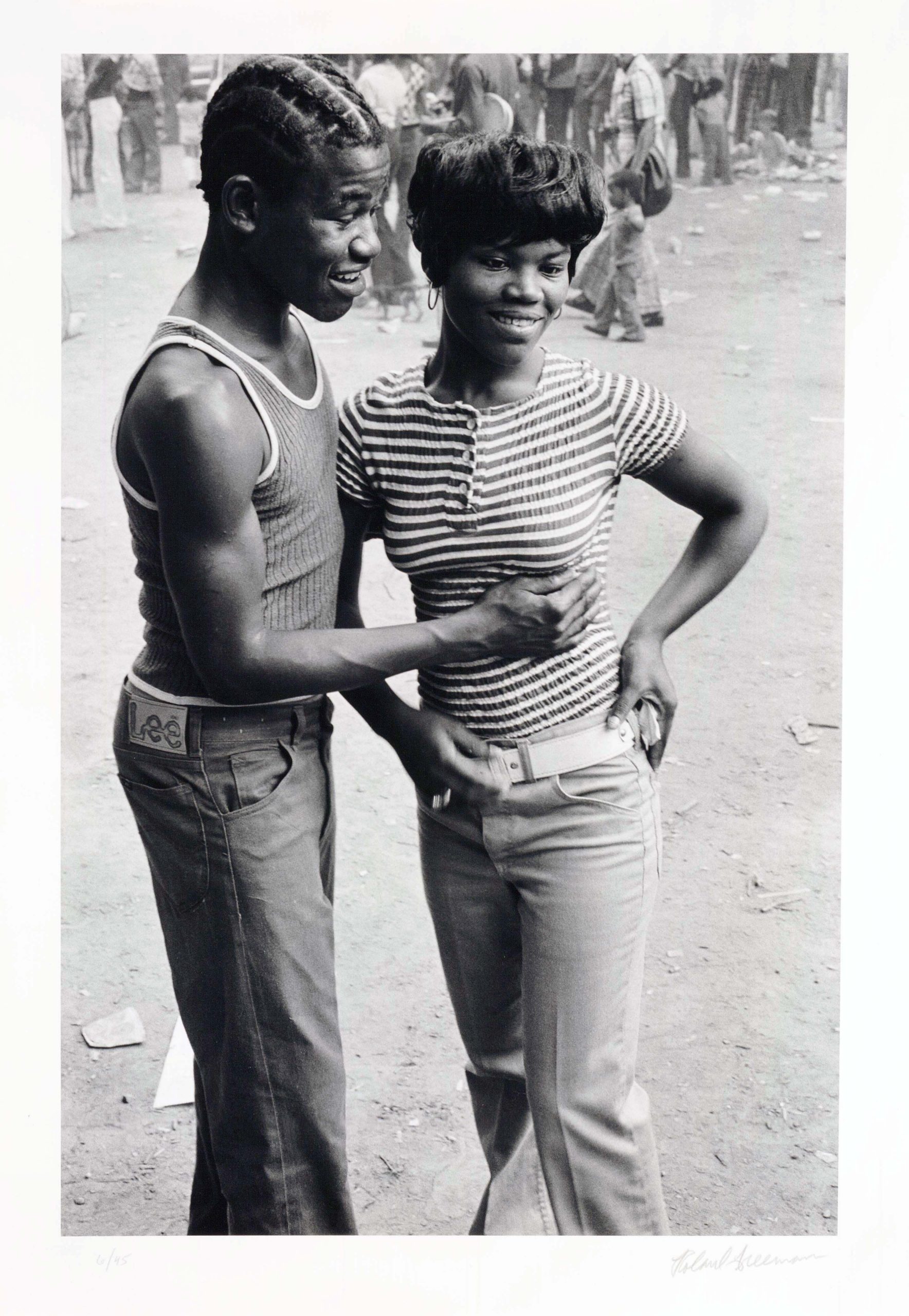
Getting Acquainted, Sunday Afternoon in Druid Hill Park, Baltimore, MD, 1973
After moving to Washington D.C., Freeman began walking the streets with his camera. A local man who used to work in a photography store took Freeman under his wing and taught him how to properly photograph people on film.
“He gave me a book called The Sweet Fly Paper of Life by Roy DeCarava and Langston Hughes. The stuff he shot in New York tenements celebrating on a Saturday night – they were poor but they had love,” Freeman says. “Those pictures let me know it was possible to take the pictures I wanted and get published.”
Freeman started out making pictures on his day off as a “way to keep my sanity.” Although he wasn’t formally trained, Freeman studied the work of Gordon Parks, James Agee and Walker Evans’ Let Us Now Praise Famous Men, Edward Steichen’s Family of Man, and became close with Magnum Photos member Burk Uzzle.
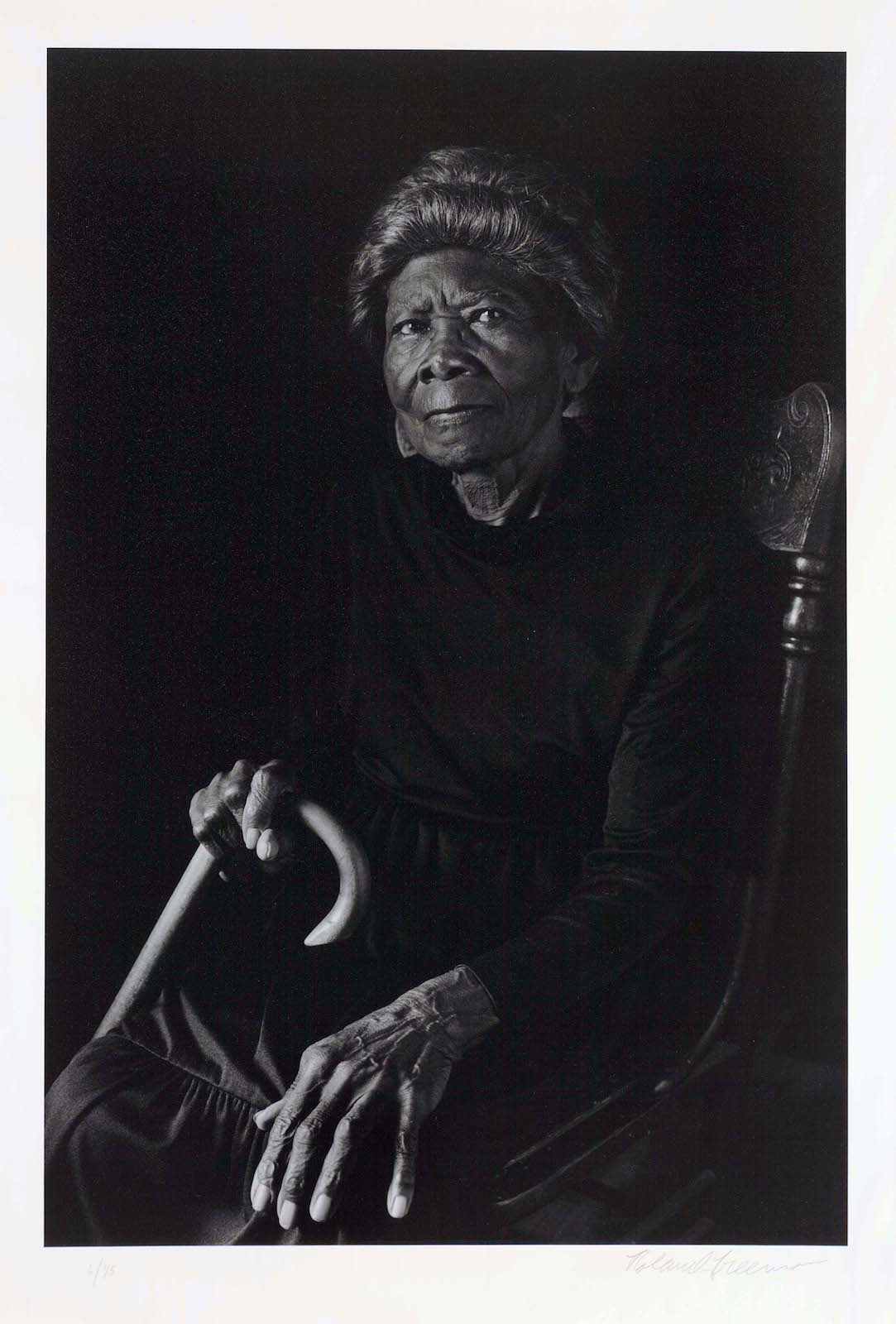
Mrs. Viola Allen, Africatown, AL, 1985
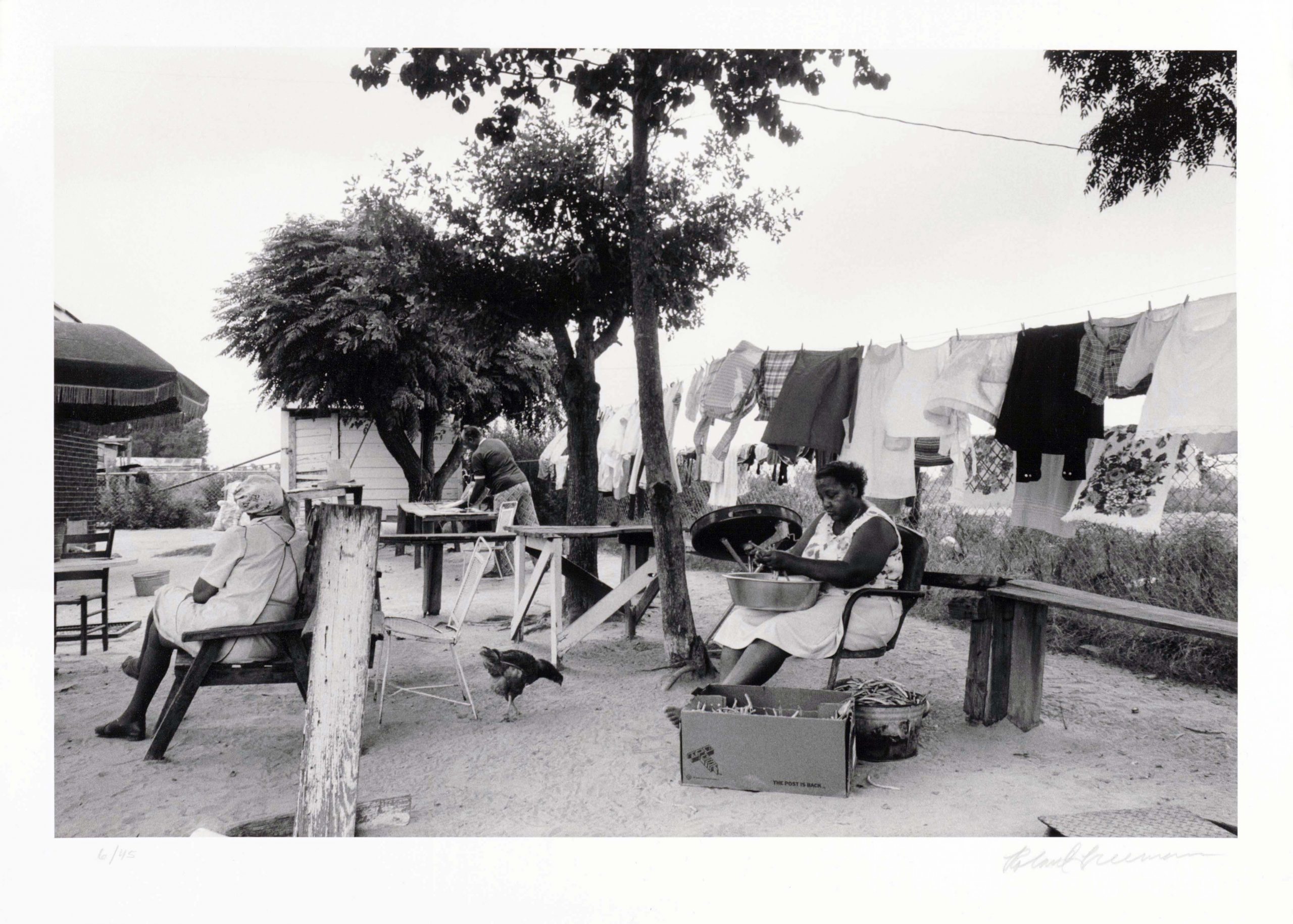
Ruby Quick, Wilford Streeter, and Claudie Mae Bright. In the Sand Hills, Near Bennettsville, SC 1979
“Burk told me, ‘Write down 10 things that scared the hell out of you and then start going to face them. That’ll help you become a better photojournalist,’” Freeman recalls. “I had Mississippi on the top of that list. I knew whose family died and they didn’t want to go back to the state to bury them.”
In 1968, Freeman went to Marks, Mississippi, to photograph the Mule Train – a group of some 150 people in 20 mule-drawn wagons heading to Washington D.C., to kick of the Poor People’s Campaign on May 13.
“I was on the train trying to figure out what the hell I’m doing. This was the first major documentary project I tried to do. We were going through the backwoods of Mississippi. Crazy people were shooting at the wagons at night, coming down the road and blowing the horn to scare the mules and run us off the road,” Freeman says.
“It was heart wrenching to be on the frontline. I was always scared. The last thing you want to do is wind up in the Mississippi jail. Every day I was the praying. But there was any place else that I wanted to be except right there.”
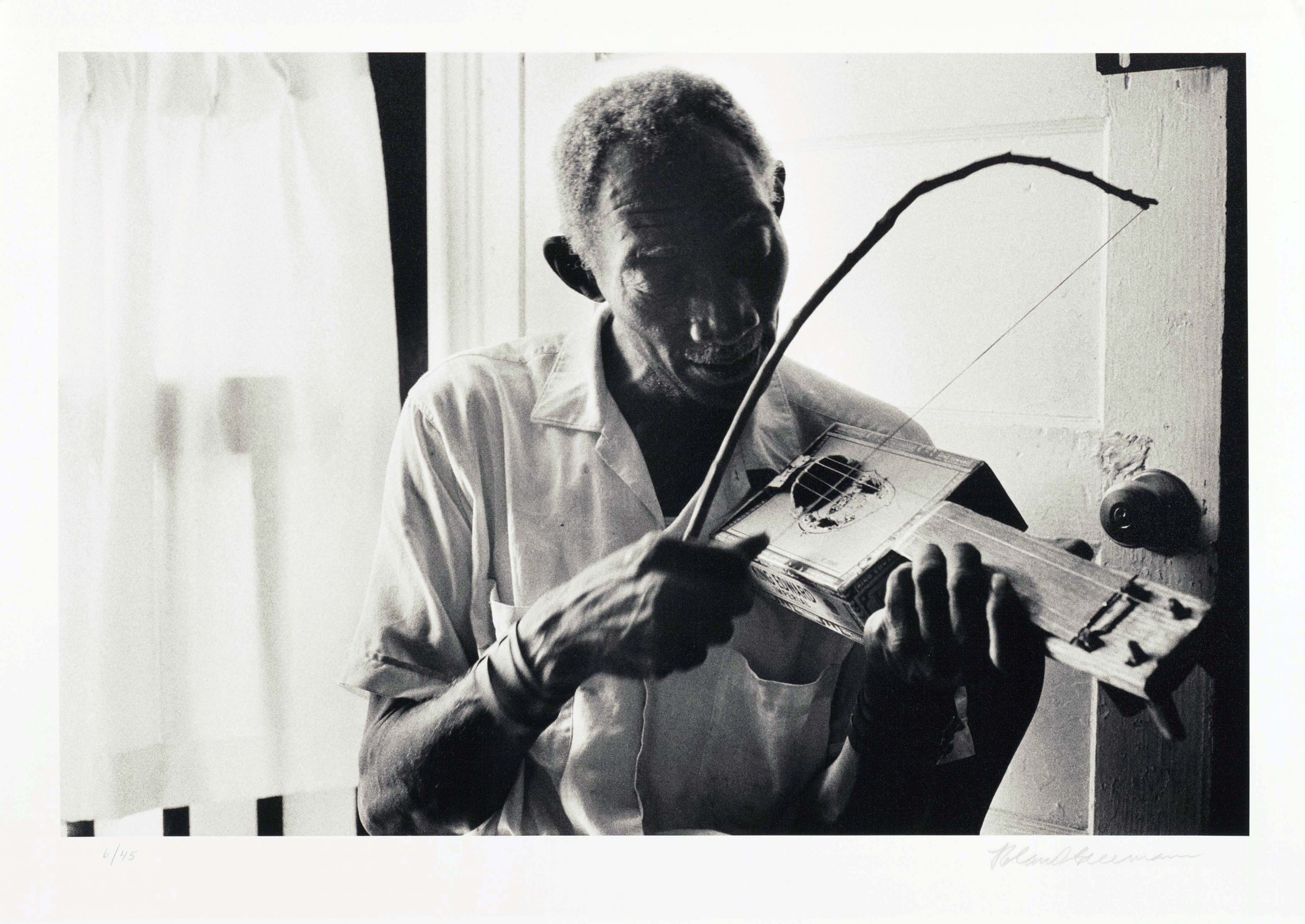
Cigar Box Fiddler Scott Dunbar, Mississippi, 1975
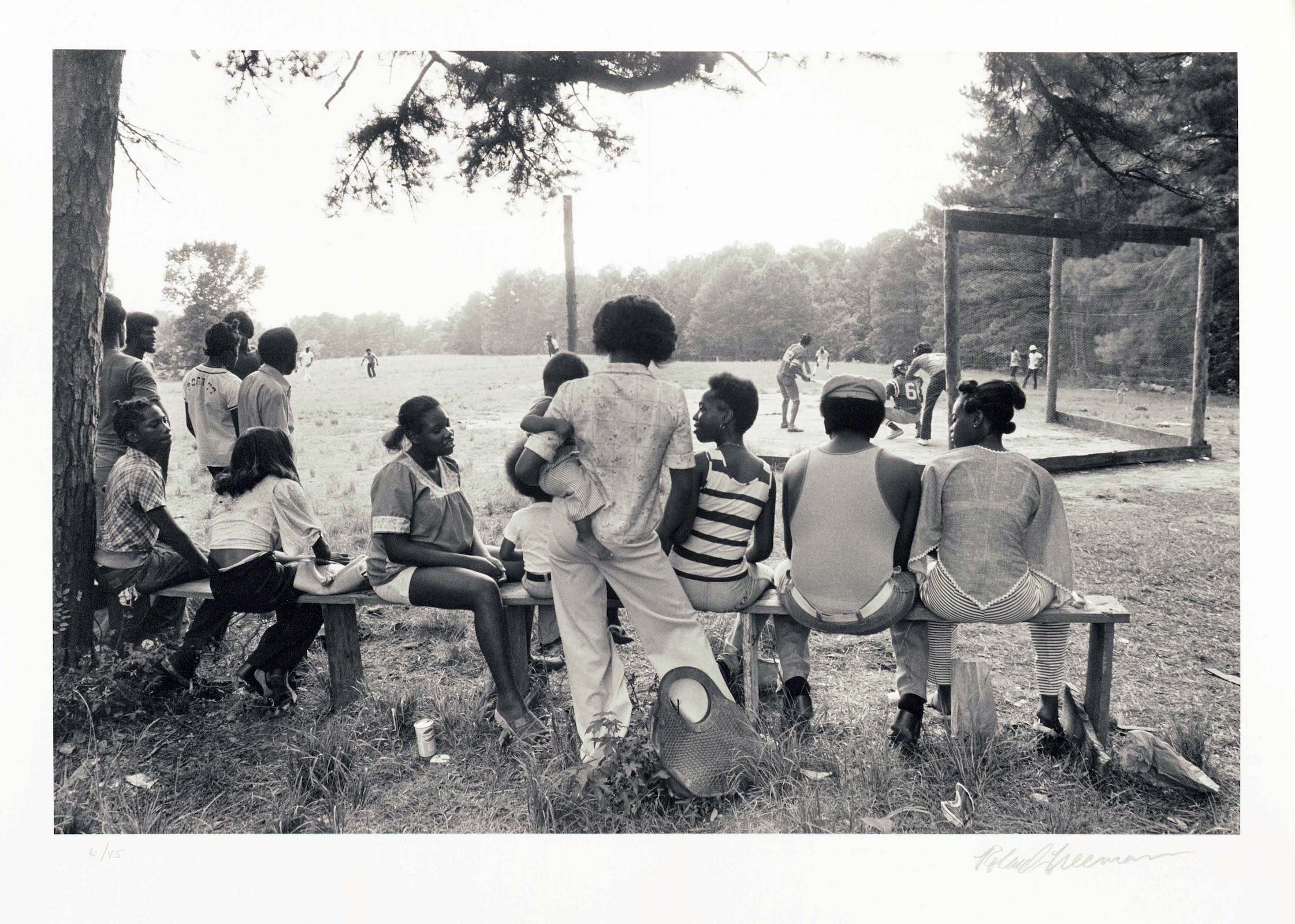
Sunday Baseball Game, Near Buffalo, MS, 1976
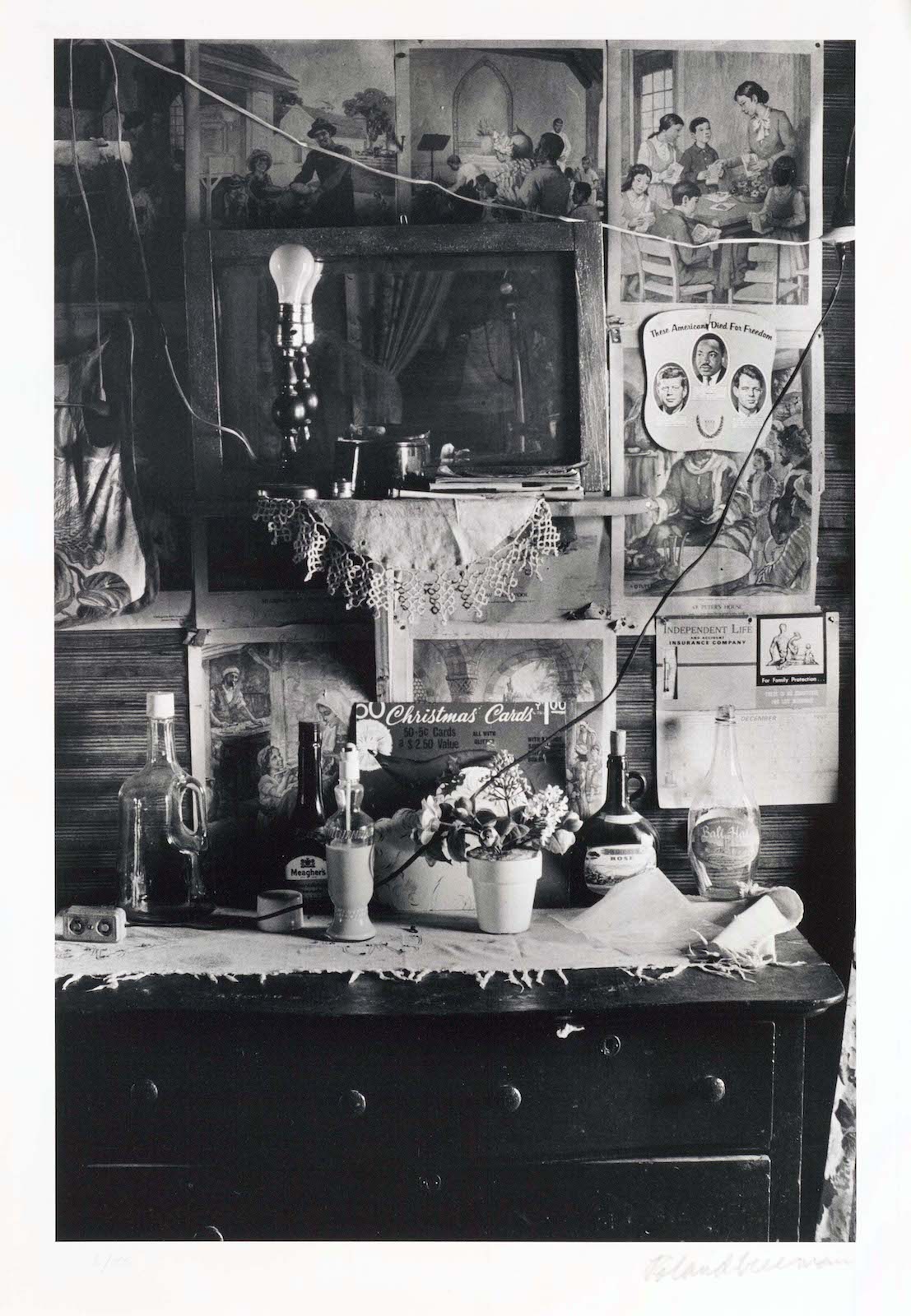
Hallway of Polk Home, Americus, GA, 1971
Roland L. Freeman: Portfolio is on view at the Ogden Museum of Southern Art in New Orleans through September 5, 2021.
Follow Miss Rosen on Twitter.
Enjoyed this article? Like Huck on Facebook or follow us on Twitter.
Latest on Huck

Is the UK ready for a Kabaddi boom?
Kabaddi, Kabaddi, Kabaddi — Watched by over 280 million in India, the breathless contact sport has repeatedly tried to grip British viewers. Ahead of the Kabaddi World Cup being held in Wolverhampton this month, Kyle MacNeill speaks to the gamechangers laying the groundwork for a grassroots scene.
Written by: Kyle MacNeill

One photographer’s search for her long lost father
Decades apart — Moving to Southern California as a young child, Diana Markosian’s family was torn apart. Finding him years later, her new photobook explores grief, loss and connection.
Written by: Miss Rosen

As DOGE stutters, all that remains is cringe
Department of Gargantuan Egos — With tensions splintering the American right and contemporary rap’s biggest feud continuing to make headlines, newsletter columnist Emma Garland explains how fragile male egos stand at the core of it all.
Written by: Emma Garland

Photo essay special: Despite pre-Carnival anxiety, Mardi Gras 2025 was a joyous release for New Orleans
A city celebrates — Following a horrific New Year’s Day terror attack and forecasts for extreme weather, the Louisiana city’s marquee celebration was pre-marked with doubt. But the festival found a city in a jubilant mood, with TBow Bowden there to capture it.
Written by: Isaac Muk

From his skating past to sculpting present, Arran Gregory revels in the organic
Sensing Earth Space — Having risen to prominence as an affiliate of Wayward Gallery and Slam City Skates, the shredder turned artist creates unique, temporal pieces out of earthly materials. Dorrell Merritt caught up with him to find out more about his creative process.
Written by: Dorrell Merritt

In Bristol, pub singers are keeping an age-old tradition alive
Ballads, backing tracks, beers — Bar closures, karaoke and jukeboxes have eroded a form of live music that was once an evening staple, but on the fringes of the southwest’s biggest city, a committed circuit remains.
Written by: Fred Dodgson